Reading Time: 4minutes
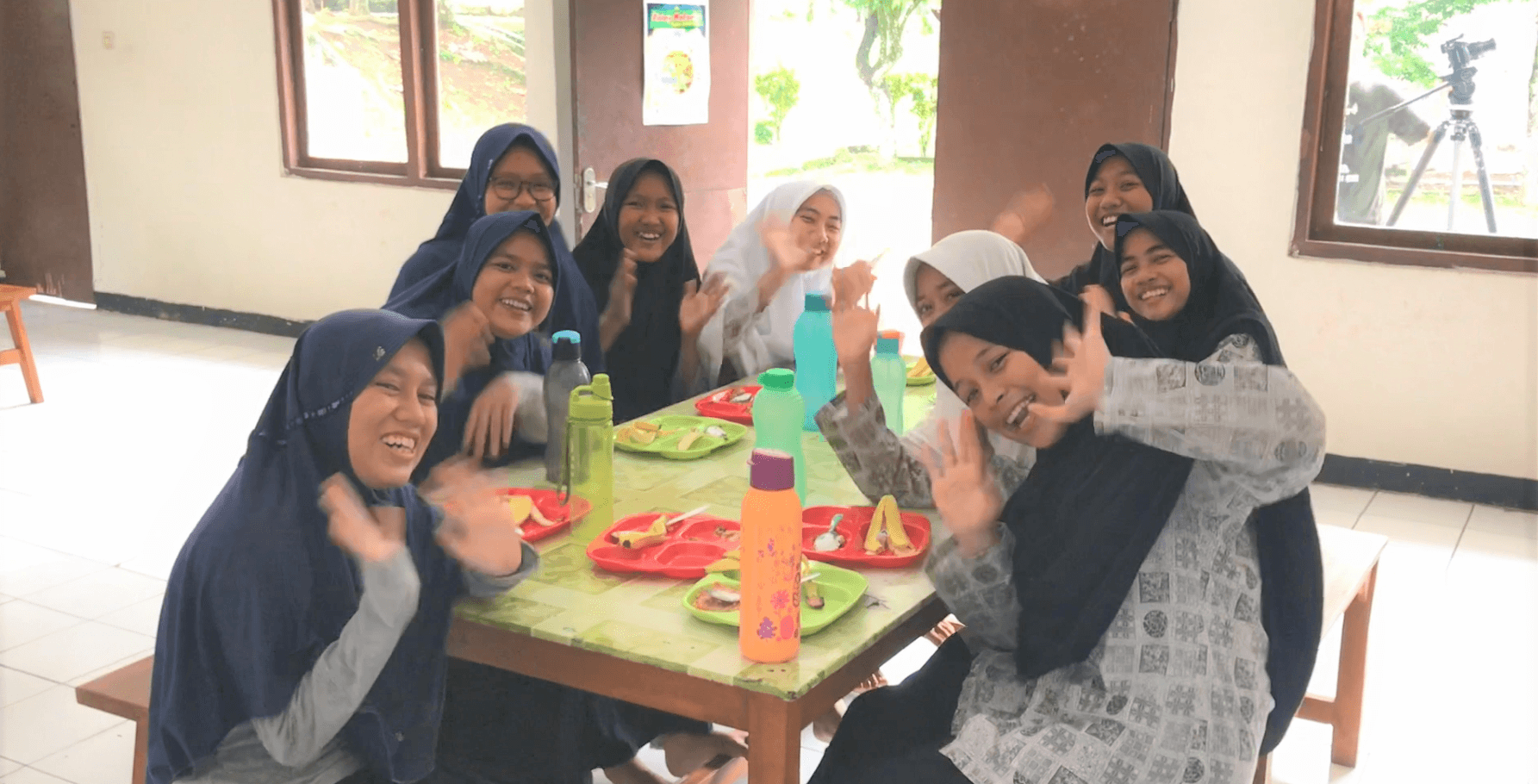
Table of Contents
School meals play a key role in child nutrition
Even in wealthy industrialized countries like Japan and the US, children from economically disadvantaged backgrounds often rely on school meals to fill nutritional gaps with much-needed servings of fresh fruits and vegetables alongside protein and carbohydrates. In developing countries such as Indonesia, the need is even greater.
According to data from 2009 and 2013, nearly half of Indonesia children were undernourished and about one in four was anaemic, conditions linked to poor physical and mental development. A 2016 study showed that roughly one in three children age 5–19 was underweight, with consumption of meat, vegetables, whole grains, and legumes well below average for the rest of Asia. Diabetes is also a concern, with saturated fat and sugar intakes on a par with the high levels seen in the West, and about one in four boys and one in five girls is either overweight or obese, according to the same study.
Nutritional issues at Indonesia’s Islamic boarding schools
Indonesia’s educational system includes nearly 36,600 private Islamic boarding schools, or pesantren. Nationwide 3.4 million pesantren students from mainly mid-to-low-income rural backgrounds live, eat and study together. Rates of anaemia, obesity, and stunting among boarding school students run well above the national average. However, according to Dr. Rimbawan, a nutritionist at Bogor Agricultural University (IPB), “Pesantren have received lower attention compared to public schools in terms of health and nutrition programs.”
Ajinomoto Indonesia launches School Lunch Program
To correct this imbalance and tackle malnutrition among pesantren students, PT Ajinomoto Indonesia partnered with IPB on a School Lunch Program pilot project at two boarding schools from 2018 to 2019. Before the project, the typical lunch menu consisted of rice and one side dish, with no fruit and little animal protein. Moreover, about half of students reported not having eaten lunch in the past week. The anaemia rate of students in the pilot program was 42.6%.
The project took a holistic approach, providing balanced meals tailored to local tastes––prepared with seasonings provided by Ajinomoto Indonesia, such as “Masako®” and “Sajiku®” brand seasonings––in addition to educating students and staff about proper nutrition, hygiene, and exercise. As a result, eating habits improved, with more children eating lunch regularly and consuming animal protein, vegetables, and fruits more frequently. Intakes of energy, fat, protein, carbohydrates, iron and vitamin C all doubled and anaemia rates fell by half. Children also reported feeling healthier, less sleepy, and more energetic and performed better on instantaneous memory tests.
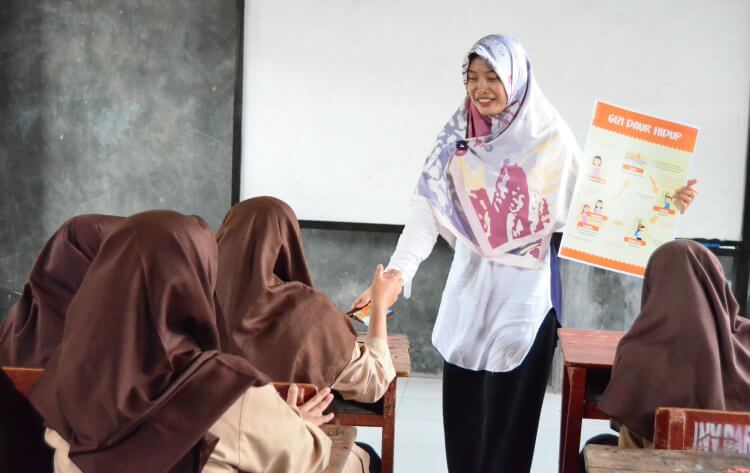
School teacher educating students about proper nutrition
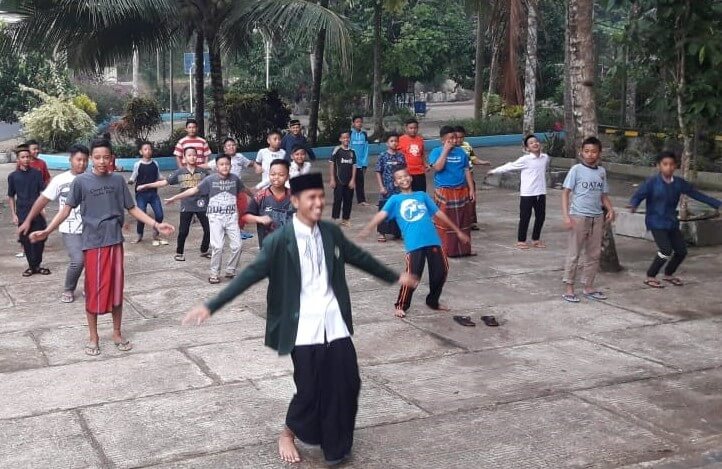
PE classes stress the role of exercise in leading healthier lives
Expanding the School Lunch Program
Based on this success, Ajinomoto Indonesia drew up a detailed plan to expand the School Lunch Program and held a webinar to attract more pesantren to participate. In 2020, a set of informational materials, or modules, containing basic health and nutritional information, balanced menu plans and recipes was created as a guide for school kitchen managers. In 2021, during the pandemic, an online mentoring project was held with six boarding schools participating, followed in 2022 by a hybrid, online/offline mentoring project for 12 additional schools. The three-stage mentoring project consisted of staff training, provision of seasonings and kitchen equipment, implementation of education and meal programs, monitoring, evaluation and follow-up.
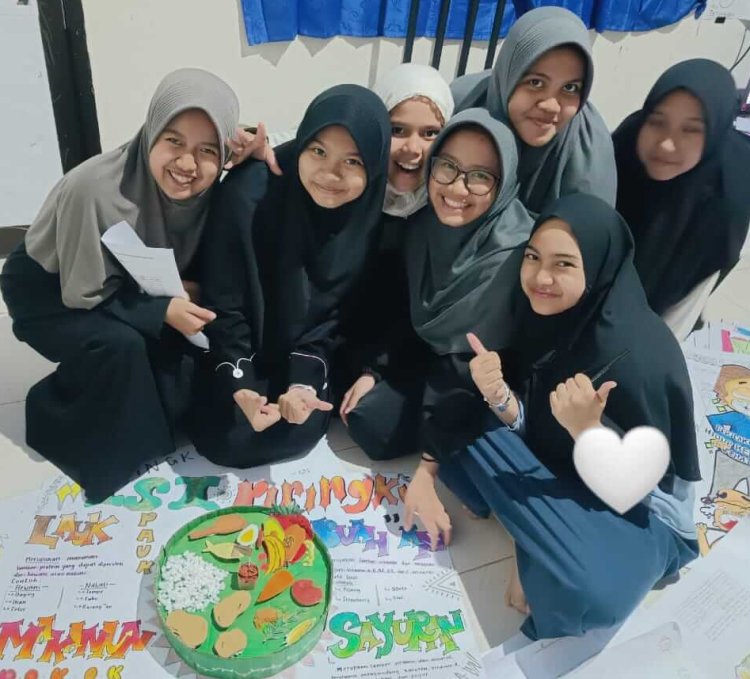
Students creating posters based on what they learned about proper nutrition
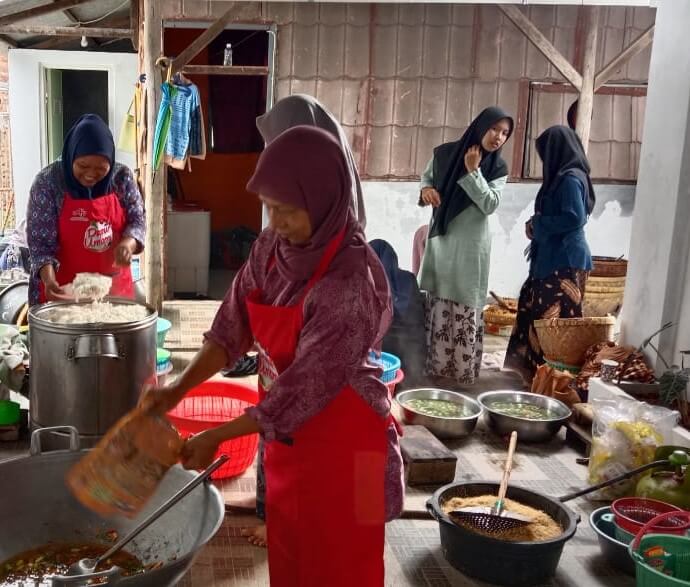
School kitchen staff preparing balanced meals using recipes provided by PT Ajinomoto Indonesia
While the School Lunch Program is still ongoing, initial findings suggest that motivation, initiative, and commitment on the part of school leadership and staff are key to the success and independent sustainability of the program. As each pesantren faces different issues in terms of scheduling, financial and human resources, and facilities and infrastructure, a flexible approach to implementation is needed, with improvements to be obtained in stages according to each school’s capability.
Ajinomoto Indonesia is committed to continuing to make a positive contribution to the welfare and health of Indonesian families. “Good nutrition is an important capital for the growth of future generations, so Indonesia can grow into a strong nation,” said Grant Senjaya, Head of Public Relations. “We hope that what Ajinomoto is sharing through this program will help to improve the health and nutritional intake of boarding school students.”
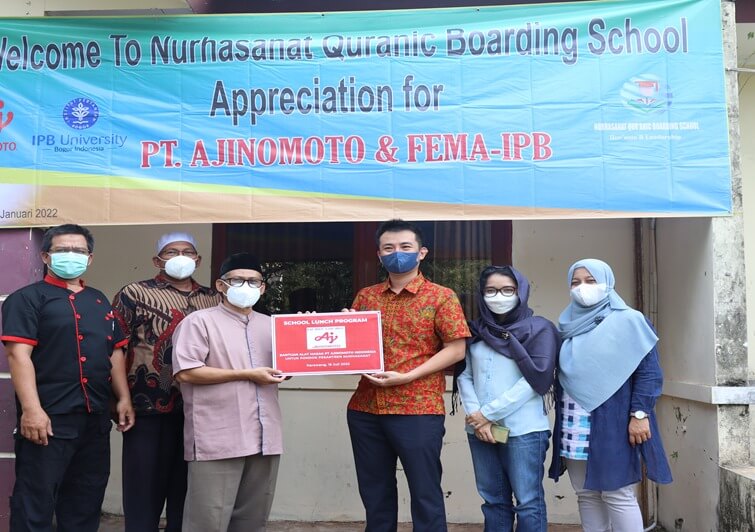
Grant Senjaya (third from right) at the handover of cooking utensils by PT Ajinomoto Indonesia to the Al Quran Nuhasanat Islamic Boarding School.
Video made by PT Ajinomoto Indonesia about the School Lunch Program
The School Lunch Program is an example of Ajinomoto Group Creating Shared Value, an initiative helping to solve social issues and create economic value by contributing to the health and well-being of families in Indonesia and around the world.
Find out more of our efforts:
Stories you may like
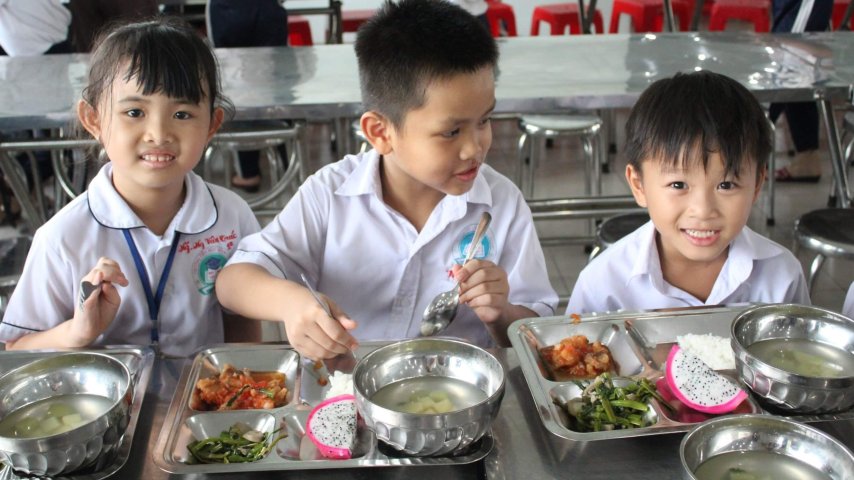
A school lunch program in Vietnam aims to improve children’s health
- Food & Wellness
- Health and Well-being
- Nutrition
- Sports
- Sustainability / SDGs
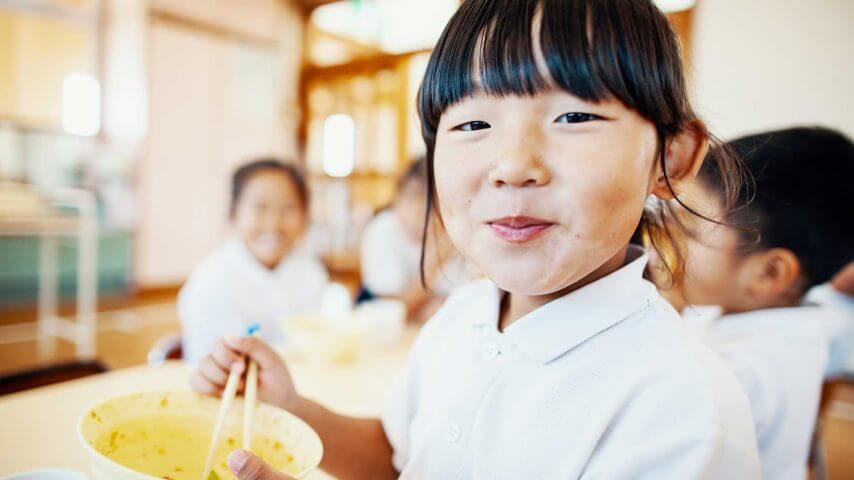
Taste you can hear: teaching children lifelong healthy eating
- Food & Wellness
- Health and Well-being
- Nutrition
- Sports
- Sustainability / SDGs

Nutrition Without Compromise: Giving people delicious, personalized choices could be key to longer, healthier lives
- Food & Wellness
- Health and Well-being
- Nutrition
- Sports
- Sustainability / SDGs


